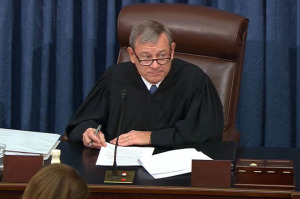Jesus Thumbs-Up Phone Ad Banned for Being 'Disrespectful'
A mobile phone advertisement featuring a cartoon picture of Jesus giving a thumbs-up sign has been banned by a British watchdog group for being "disrespectful" to Christians.
The British advertising watchdog group, the Advertising Standards Authority (ASA), reported that the Phones4U company ad, which ran nationally on April 21, seemed derogatory toward Christians.
The ad featured an image of Jesus donning a Sacred Heart on his chest with the slogan “Miraculous deals on Samsung Galaxy Android Phones.”
Phone4U has denied any intention to show disrespect, saying the image was supposed to be a "light-hearted, positive, and contemporary image of Christianity," according to the BBC.
ASA said in a statement: "We considered that, although the ads were intended to be light-hearted and humorous, their depiction of Jesus Christ winking and hold a thumbs-up sign, with the text 'miraculous' deals during Easter, the Christian Holy Week which celebrated Christ’s resurrection, gave the impression that they were mocking and belittling core Christian beliefs."
Over 98 complaints were filed over the ad, triggering the investigation. Phones4U issued an apology to every person who filed a grievance, saying that it "understood and regretted" the incident.
The ASA has had to confront potentially offensive religious ads before. Around Christmastime of 2006, a British magazine had run a controversial ad for the Big Prawn Company featuring a Nativity scene. Instead of the traditional baby Jesus, the scene featured a large shellfish meal with the slogan "A King is born. Order now to ensure a Christmas delivery."
The advertisement received 28 complaints, which were rejected by the ASA on the grounds that many of the magazine's readers would see the ad as light-hearted and that it was "unlikely to cause serious or widespread offense."
In 2010, the most complained about advertisement in the UK was made by a gambling firm, Paddy Power, and featured blind soccer players confusing their ball with a cat that had wandered onto the field. The advertisement received over 1,300 complaints.
The ASA banned the ad based on its depiction of disabled people as well as the ill treatment of an animal.





























